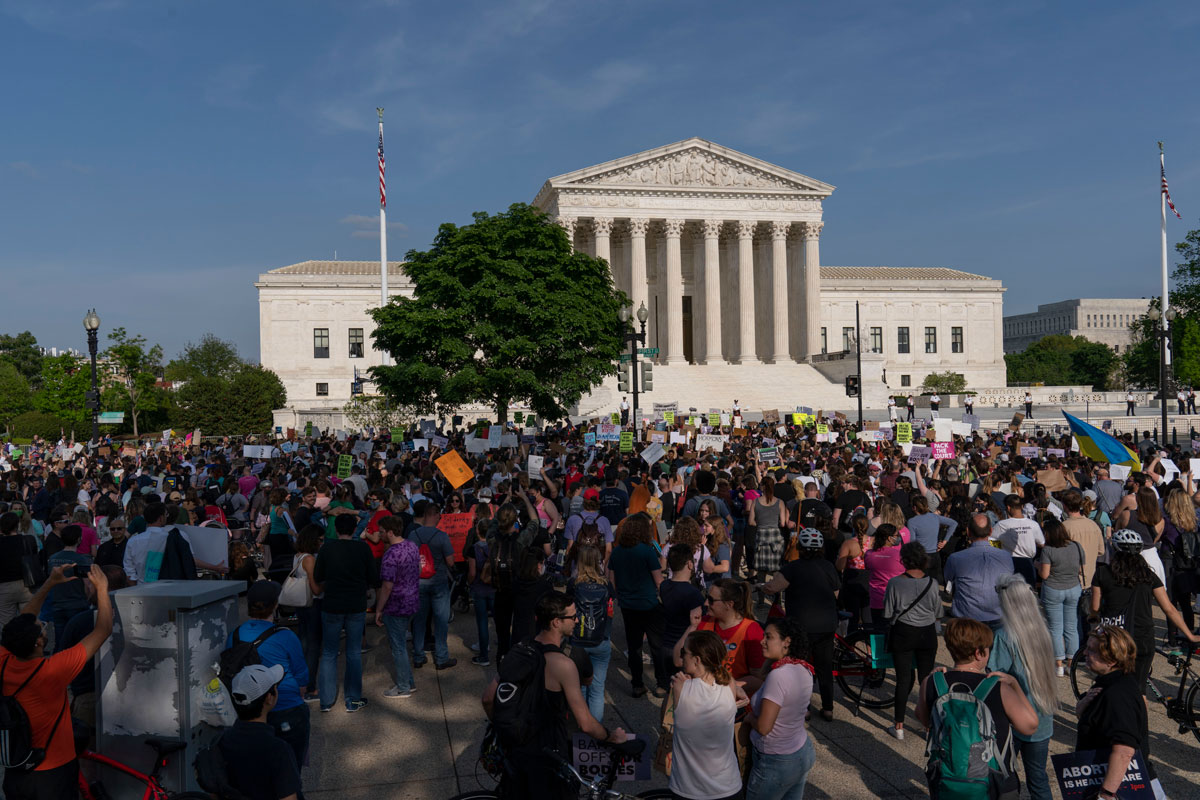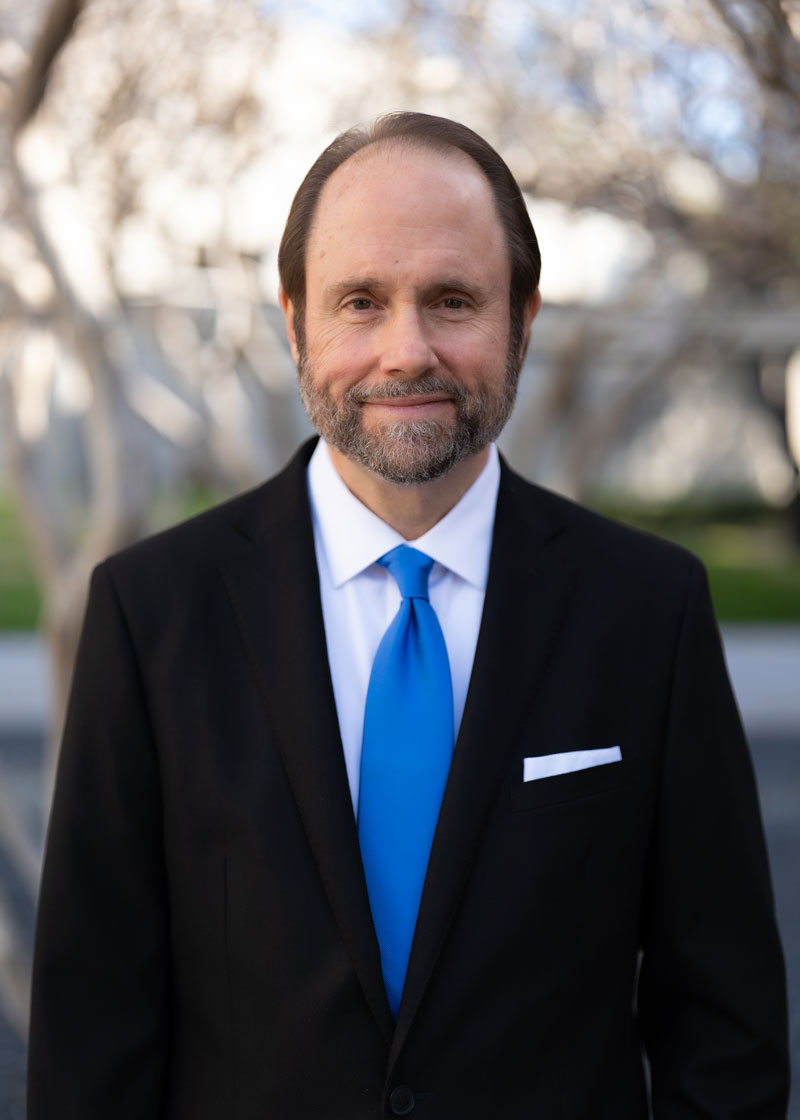The leak of a Supreme Court draft Monday evening is dominating the news again this morning.
Amy Howe, the Supreme Court analyst at SCOTUSblog, tweeted, “It’s impossible to overstate the earthquake this will cause inside the Court, in terms of the destruction of trust among the Justices and staff. This leak is the gravest, most unforgivable sin.” Criminal law professor Orin Kerr called the leak “the most egregious violation of confidentiality for a staff member or employee of the court that you can imagine.”
Barricades were erected around the Supreme Court building after the leak in anticipation of public reactions. This turned out to be a wise move, as demonstrators on both sides rallied Monday night and into Tuesday morning. Signs included “[expletive deleted] SCOTUS” and “Sam Alito Retire [expletive deleted].”
One activist wrote, “Seriously, shout out to whoever the hero was within the Supreme Court who said ‘[expletive deleted] Let’s burn the place down.'” Others issued similar calls for violence against the court.
After the Kavanaugh confirmation in 2018, hundreds of protesters tried to break down the Supreme Court’s bronze doors, scaled the building and its statues, and threw tomatoes and water bottles at the cars of justices who had attended his swearing-in. We are left to wonder what the reaction will be if the draft document does in fact mirror the court’s ruling this summer, or if it does not.
What prompted the leak?
Chief Justice John Roberts issued a statement yesterday confirming the authenticity of the draft opinion leaked to POLITICO and announcing an investigation into the document’s disclosure, which he described as a “singular and egregious breach” of the court’s trust. According to Axios, “This is the first time in modern history that a ruling has leaked before the court issued it publicly.”
It is being reported that Roberts did not want to overturn Roe v. Wade, resulting in a five-to-four majority for such a ruling. However, draft opinions are far from final since justices often change their minds during the writing process. For example, in Planned Parenthood of Southeastern Pennsylvania v. Casey, the 1992 Supreme Court was reportedly ready to reverse Roe but ended up affirming it after further negotiation.
Some therefore believe that the leak was intended to “incite violence and bully justices into changing their votes.” On the other side of the coin, New York Times columnist Ross Douthat writes this morning that the leak “might suggest that a leaker on the conservative side hopes to freeze a wavering justice—Kavanaugh being the obvious candidate—into their initial vote.”
Legal experts are discussing the degree of illegality involved in the leak. Some Democrats are calling for Congress to pass a federal law codifying Roe v. Wade, seeking federal legislation that would override laws in states that restrict abortion. Some are demanding that the Senate eliminate the filibuster rule to pass such a bill.
Democrats and Republicans are both claiming that the ruling will help energize their supporters in the midterm elections. And some are calling for the Court to issue its ruling now rather than in late June or early July, arguing that the leak “was meant to corrupt the process.”
Meanwhile, Amazon promised to reimburse employees who travel to obtain abortions; Yelp announced that it would do the same. And as more states restrict abortion, an estimated fifty doctors are traveling across state lines to perform abortions in places with limited abortion access.
A brilliant case for life
How should Christians respond to this furor?
Writing for Public Discourse, law professor Michael Stokes Paulsen outlines what he calls “the one and only pro-life argument.” He makes a brilliant case that the issue comes down simply to this question: whether the unborn child is or is not a living human being. If it is, there can be no moral justification for killing it save in self-defense (saving the life of the mother).
He makes his point by asking whether any moral argument justifies killing “a born, living child.” He compiles all the “good” arguments for abortion: “poverty, economic or social stress, lost or delayed opportunities, single motherhood, male abandonment, sexual autonomy, conscientious but unsuccessful use of contraception, the child’s disability, rape or incest, the emotional or psychological distress of parenthood.” Then he asks whether any of these would “justify what we would otherwise recognize as the simple murder of a living newborn, infant, or toddler.”
Paulsen then compiles all the “bad” motives for forbidding abortion: “hypocrisy, callousness, intentional subjugation of women, discrimination, a desire to impose unwelcome religious beliefs upon others.” And he asks whether they would “render the deliberate killing of born, living human children right.”
His point is clear and compelling: if the unborn child is a living human being, he or she deserves the same protections of the state as any other living human being. In fact, Paulsen notes, “If the unborn child is factually a human life, then saving such lives from the violence of others is a compelling interest if ever there was one. Indeed, it is a moral obligation and imperative.”
Our most urgent imperative
Paulsen is right: as controversy over the leaked Supreme Court document swirls and the political ramifications of overturning Roe v. Wade dominate the cultural debate, the personhood of an unborn child should be our most urgent imperative. That’s why in my website article, “Abortion and the Mercy of God,” I offer an in-depth scientific, medical, and biblical argument that life begins at conception.
For today, let’s focus on this fact: we are in this to advocate for living human beings. We believe that David’s prayer is true of every human from the moment of conception:
You formed my inward parts;
you knitted me together in my mother’s womb.
I praise you, for I am fearfully and wonderfully made. . . .
Your eyes saw my unformed substance;
in your book were written, every one of them,
the days that were formed for me,
when as yet there was none of them (Psalm 139:13–14, 16).
Would you take a moment to thank God for forming you in your mother’s womb?
Would you thank God that your mother chose to give you life?
Would you ask God what you can do today to help someone else choose life?
NOTE: For a discussion of the moral arguments for and against abortion and biblical responses, I encourage you to listen to a new episode of The Denison Forum Podcast I recorded yesterday with Dr. Mark Turman. Listen on Apple Podcasts or Spotify.










